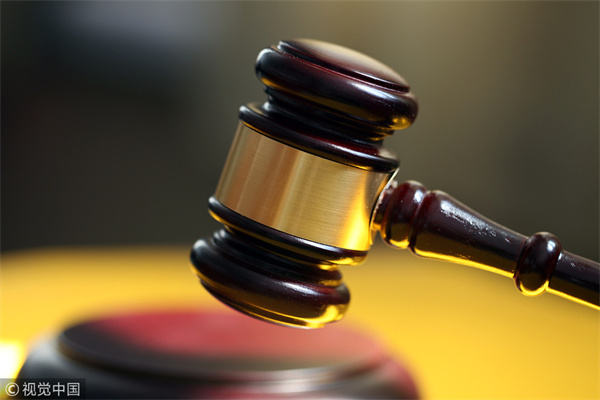Harsher punishments handed out for illegal land occupation

[Photo/VCG]
Strictest judicial measures have been put in place to deter potential offenders
Chinese courts have stepped up efforts to combat the illegal occupation or utilization of arable land, upholding the concept of green development and handing out harsh punishments to violators, so that the country can promote farmland conservation and ensure food security.
"Over the past few years, we've taken the strictest judicial measures to protect the environment, severely fighting behaviors that damaged agricultural land and food security, regardless of where and when they occurred, and who was responsible for them," Wu Zhaoxiang, a judge from the Supreme People's Court (SPC), said at a news conference on Wednesday.
"We've resolutely punished those who should be held criminally liable in line with the law, so as to maintain the bottom line of ecological security," added Wu, who is chief judge of the SPC's Environment and Resources Division.
He made the remark on Wednesday while introducing to the public 10 influential cases involving the damage of farmland, emphasizing that "the lifeblood of food production is cultivated land".
In one case in Dalian, Liaoning province, two people — surnamed Ji and Li — were given harsh punishments after they were discovered to have dug up and sold soil and sand without permission from 2011 to 2014.
The pair made an illicit profit of 664,500 yuan ($92,600), and their actions resulted in the destruction of about 4.26 hectares of farmland.
"They knowingly took land illegally and destroyed cultivated land, which constituted the crime of illegal occupation of farmland," the court in Dalian's Shahekou district said. "Their behavior even damaged the soil planting layer, affecting food production and endangering ecological security."
Considering the large land area they destroyed and the huge amount of money illegally obtained, the court sentenced Ji to three years and six months in prison and Li to imprisonment of 18 months. Each was also fined 50,000 yuan, and all of their illicit gains were confiscated.
Wu said that the ruling showed the judicial determination against those who destroyed farmland, and served as a warning to others engaged in such activities.
In addition to heavy punishment, Chinese courts have also strengthened the protection of arable land by improving the hearings for civil disputes regarding the contracting, transfer and management of farmland.
"Arable land is not only an important cornerstone of agricultural production, but also a key factor and resource of economic development," said Du Jun, deputy chief judge of the SPC's First Civil Division.
"Efficiently dealing with farmland-related civil lawsuits fully protects the property rights and interests of farmers and agricultural business entities," he added. "It's also conducive to serving rural vitalization and promoting rational allocation of land resources."
Furthermore, courts nationwide are required to guide defendants to repair damaged land while solving their cases and punishing them, "so that they could enhance legal awareness of farmland protection," Wu said.
China has also revised the Land Management Law, and recently formulated the Black Soil Protection Law and Food Security Law, "which have made the legal basis for farmland conservation more sufficient and much stronger", he added.







